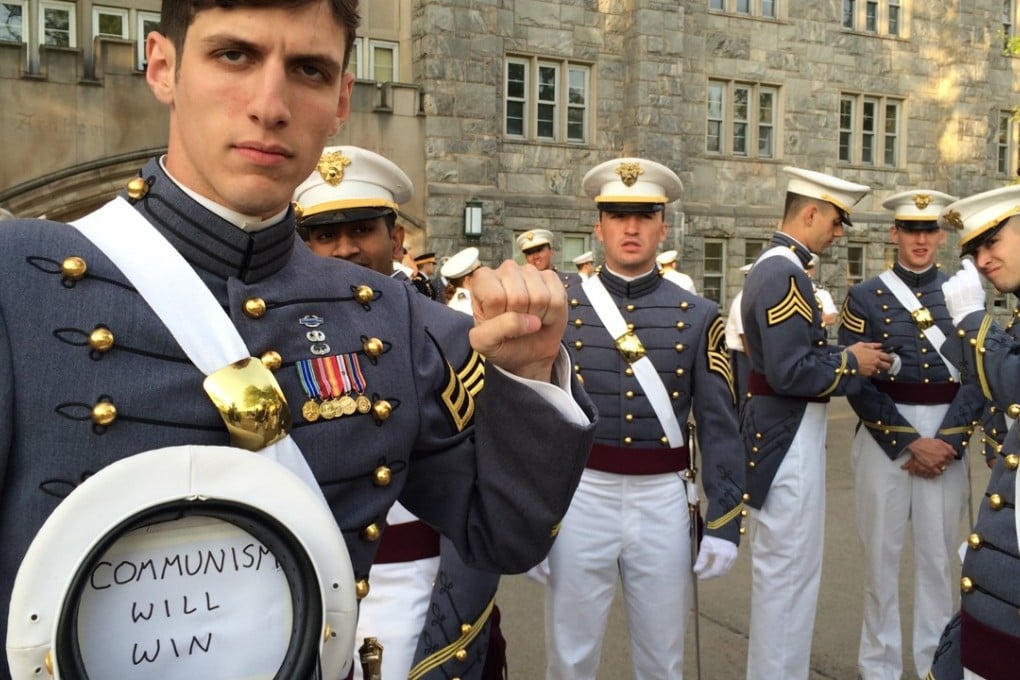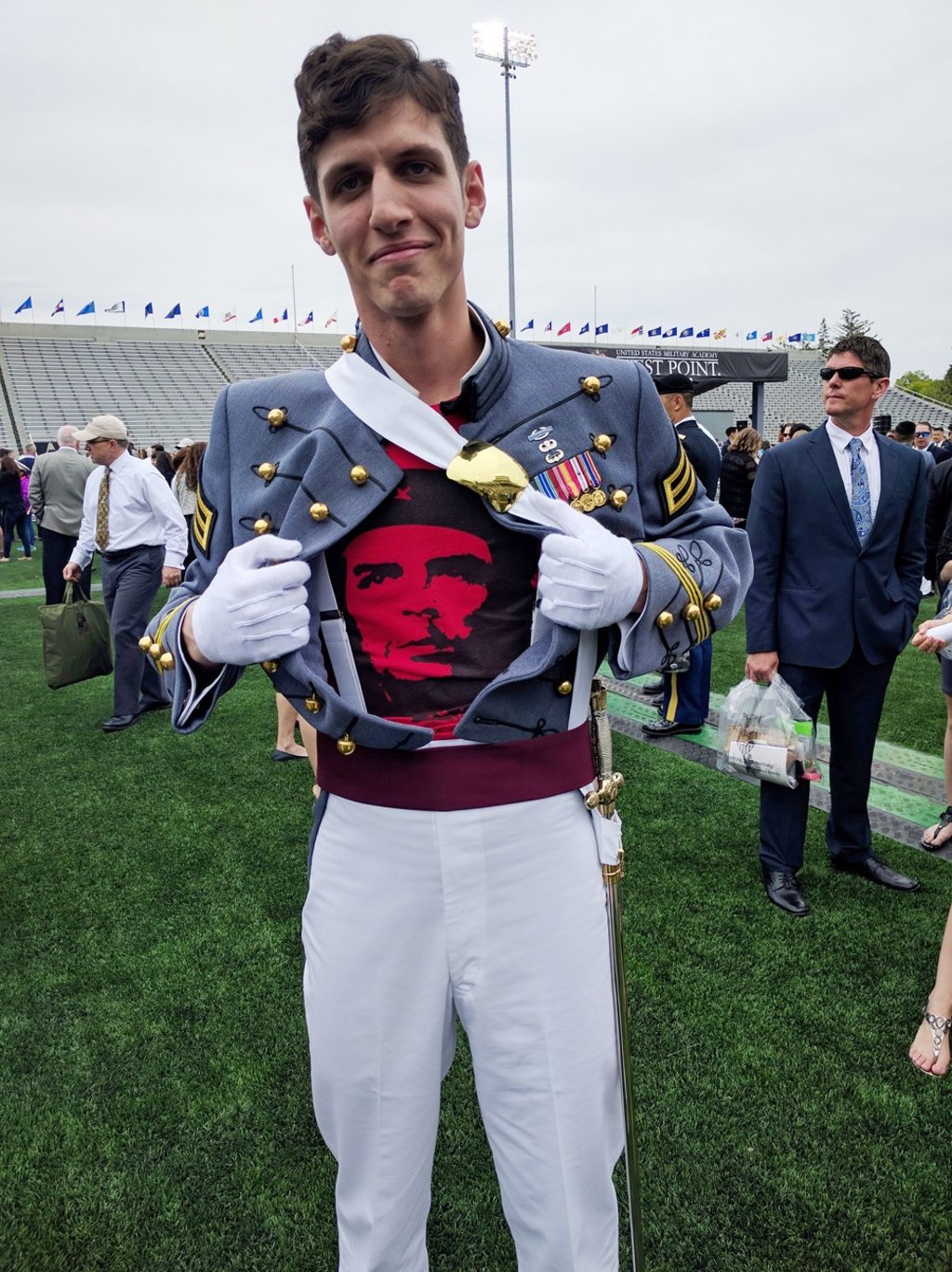West Point graduate wrote ‘Communism will win’ in his cap. The US Army kicked him out
Afghanistan combat veteran and former Army Ranger Spenser Rapone became known as the ‘commie cadet’, and was said to have advocated a socialist revolution

The alumni of the United States Military Academy at West Point span presidents, generals and astronauts in what its students call the Long Grey Line, a nod to the Army service academy’s central role in educating leaders years before they rise to prominence.
Spenser Rapone, 26, became notable a bit faster than most graduates.
On Monday, the Army’s 10th Mountain Division accepted the resignation of 2nd Lieutenant Rapone less than a year after he posted photos of himself at his 2016 graduation, posing in a Che Guevara shirt under his uniform, along with a fist salute to underline a message written in his cap: “Communism will win.”

We have one of the most technologically advanced militaries of all time and all we were doing is brutalising and invading and terrorising a population that had nothing to do with what the United States claimed was a threat
Rapone, who was previously enlisted as an Army Rangers and served in Afghanistan before attending West Point and becoming an officer, told Associated Press that he was reprimanded for conduct unbecoming an officer, and an investigation concluded that he advocated for a socialist revolution while insulting senior military officials.